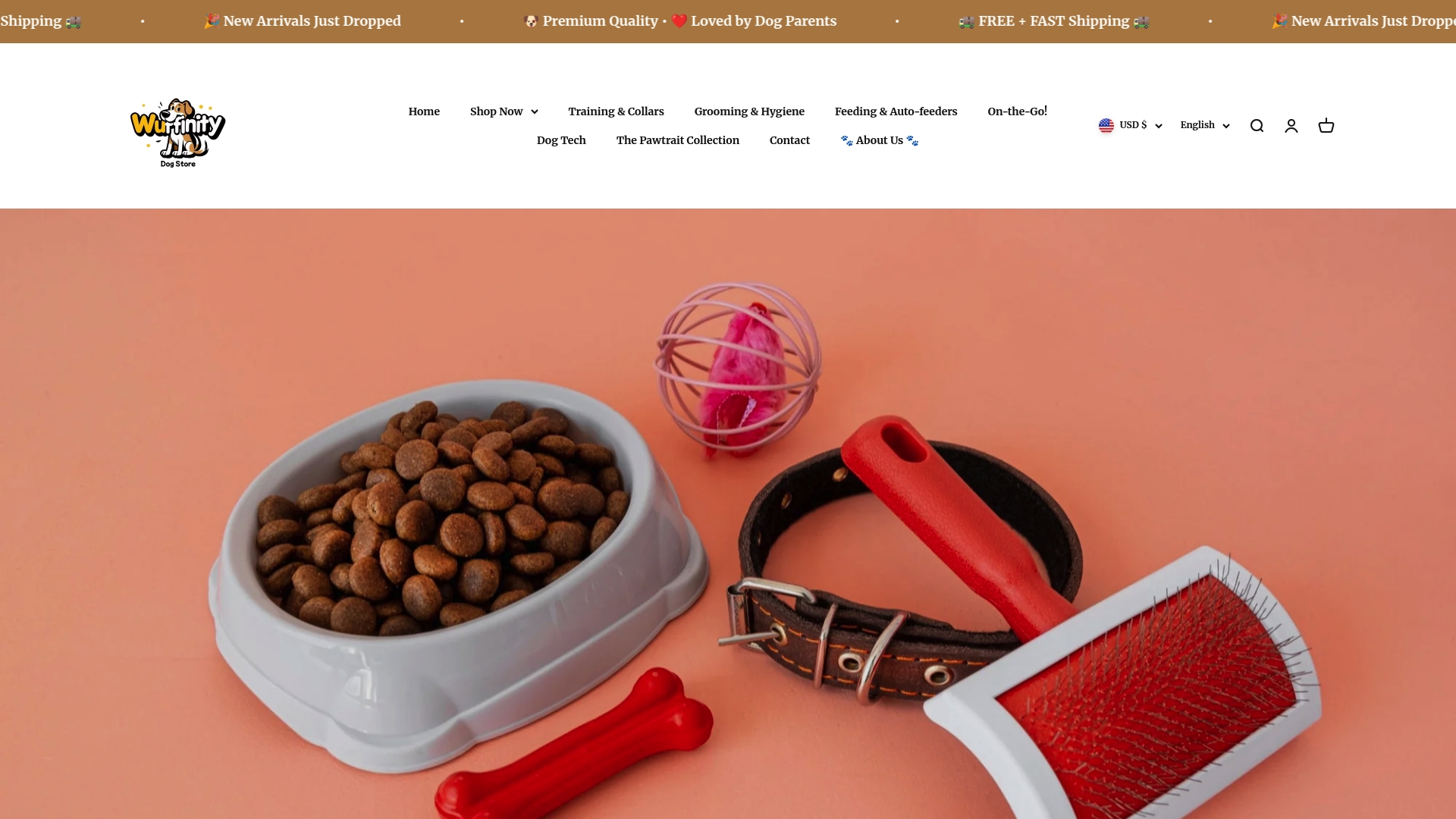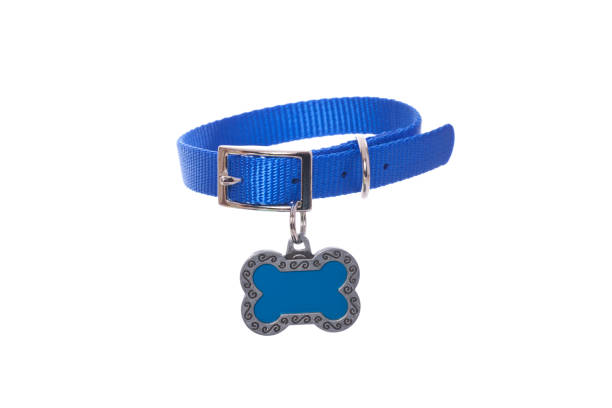Yorkshire Terriers might weigh as little as 3.2 kg, but their personalities fill the whole room. This petite breed has earned a reputation for being far more than just a pretty face, capturing the loyalty of dog lovers across the globe. Whether you live in a city apartment or a cozy cottage, understanding what sets Yorkies apart helps you appreciate why so many families and individuals choose these tiny, spirited companions.
Table of Contents
- What Is a Yorkshire Terrier Dog?
- Distinctive Traits and Breed History
- Temperament and Common Behavior Patterns
- Grooming, Feeding, and Care Essentials
- Training Tips and Potential Health Issues
- Choosing Quality Products for Yorkies
Key Takeaways
| Point | Details |
|---|---|
| Compact Size, Big Personality | Yorkshire Terriers are small but exhibit a bold, confident demeanor, making them excellent companions for individuals and families. |
| Grooming is Essential | Regular grooming and dental care are crucial for maintaining their health and signature appearance. |
| Training Requires Patience | Using positive reinforcement and keeping training sessions short helps engage their intelligent yet sometimes willful nature. |
| Health Awareness is Key | Being aware of common health issues like luxating patella and dental problems is vital for proactive care. |
What Is a Yorkshire Terrier Dog?
The Yorkshire Terrier is a delightful miniature companion dog with a fascinating history and charming personality. Originally bred in Yorkshire, England during the 19th century, these tiny terriers have captured the hearts of dog lovers worldwide. According to Wikipedia, they are among the smallest terrier breeds, typically weighing no more than 3.2 kg and sporting a distinctive coat featuring tan head coloration and dark steel-gray body fur.
Despite their small size, Yorkshire Terriers pack an outsized personality into a compact package. These dogs are renowned for their energetic and playful disposition, making them exceptional companion animals for individuals and families alike. Their terrier heritage means they possess a spirited and confident temperament, often behaving as though they are much larger dogs. This bold character is part of what makes Yorkies so endearing to their owners.
Physically, Yorkshire Terriers are characterized by their luxurious, silky coat and petite frame. Toy breed enthusiasts appreciate their elegant appearance and manageable size, which makes them perfect for apartment living or homes with limited space. Their coat requires regular grooming to maintain its signature glossy texture, and many owners choose to keep their Yorkies in stylish, longer haircuts that showcase their beautiful fur.

Key characteristics of Yorkshire Terriers include:
- Typically weighing between 4-7 pounds
- Intelligent and quick to learn
- Highly adaptable to various living environments
- Strong protective instincts despite their small size
- Excellent companion dogs for single owners and families
While originally bred as working dogs in textile mills to catch rats, modern Yorkshire Terriers have transitioned into beloved pets that thrive on human companionship and attention. Their compact size, vibrant personality, and affectionate nature make them a popular choice for dog lovers seeking a small but spirited four-legged friend.
Distinctive Traits and Breed History
The Yorkshire Terrier has a rich and fascinating origin story deeply rooted in the industrial landscape of 19th-century England. According to Wikipedia, these remarkable dogs emerged from the textile regions of Yorkshire, developed by Scottish weavers who brought various terrier breeds with them during the Industrial Revolution. These working-class immigrants needed small, agile dogs capable of controlling rat populations in textile mills and factories.
Physically, Yorkshire Terriers are distinguished by their extraordinary coat characteristics. The breed standard features a unique coloration - tan on the head and dark steel-gray on the body - which sets them apart from other small terrier breeds. Their coat texture is particularly remarkable, characterized by long, silky hair that requires meticulous grooming. Despite their diminutive size, typically weighing no more than 3.2 kg, Yorkies possess a confident and spirited temperament that belies their small stature.
Breed development was primarily concentrated in the industrial regions of Northern England, where these dogs transitioned from working ratters to beloved companion animals. Their small size, combined with an intelligent and energetic disposition, made them increasingly popular among both working-class families and aristocratic households. By the late 19th century, Yorkshire Terriers had gained significant recognition and were becoming established as a distinct breed.
Key historical and breed characteristics include:
- Originated in Yorkshire, England during the industrial era
- Initially bred for rat control in textile mills
- Descended from multiple Scottish terrier breeds
- Recognized as a distinct breed in the late 19th century
- Transitioned from working dogs to companion animals
Today, Yorkshire Terriers are cherished worldwide as affectionate, compact companions that carry the legacy of their hardworking ancestors. Their remarkable journey from industrial ratters to global pet favorites is a testament to their adaptability and enduring charm. Check out our guide on small dog breeds to learn more about similar companion dogs.
Temperament and Common Behavior Patterns
Yorkshire Terriers are known for their surprisingly bold and vibrant personalities that completely contradict their tiny size. According to PetMD, these dogs exhibit a brave and bossy temperament, often perceiving themselves as much larger than they actually are. This characteristic makes them incredibly entertaining companions who approach life with remarkable confidence and spirit.
Their social nature is another standout trait. Yorkies are typically affectionate with both family members and strangers, though individual personalities can vary significantly. While they are generally friendly, they can also be excessive barkers - a trait that requires consistent training and socialization. Their curious and intelligent nature means they thrive on mental stimulation and interactive play, making them ideal pets for owners who can provide engaging activities and consistent attention.
One fascinating aspect of Yorkshire Terrier behavior is their adaptability. Despite their potential for vocal outbursts, Yorkies can be trained to be excellent apartment dogs with proper guidance. They form strong bonds with their human families and often display a protective instinct that belies their small stature. This combination of confidence, intelligence, and loyalty makes them much more than just a tiny decorative pet.
Key behavioral characteristics include:
- Highly confident and self-assured
- Intelligent and quick to learn
- Strong desire for human interaction
- Potential for excessive barking if not trained
- Adaptable to various living environments
Understanding and working with a Yorkie’s unique personality requires patience, consistent training, and plenty of positive reinforcement. Their big-dog attitude in a small package ensures that life with a Yorkshire Terrier is never boring.
VIDEO:video_content] [Learn more about small dog training techniques to help your Yorkie become a well-adjusted companion.
Grooming, Feeding, and Care Essentials
Grooming is perhaps the most distinctive aspect of Yorkshire Terrier care, with their luxurious, silky coat demanding meticulous attention. According to PetMD, these dogs require regular grooming to maintain their signature appearance, including daily brushing and periodic professional trims. Their fine, human-like hair is prone to tangling and matting, making consistent maintenance not just a cosmetic concern but a critical health requirement.
Nutritional needs for Yorkies are equally specific and nuanced. These tiny dogs have fast metabolisms but are also prone to obesity, which means portion control and high-quality nutrition are paramount. Small breed-specific food formulas that provide concentrated nutrients in smaller portions work best. Dental health is another crucial consideration, as Yorkies can be susceptible to dental issues - regular tooth brushing and dental treats can help prevent potential problems.
Exercise and mental stimulation are essential for keeping a Yorkshire Terrier healthy and happy. Despite their small size, they are energetic dogs that require daily activity. Short walks, indoor play sessions, and interactive toys can help meet their exercise needs. Mental engagement is just as important as physical activity; puzzle toys, training exercises, and varied play can prevent boredom and potential behavioral issues.
Key care essentials for Yorkshire Terriers include:
- Daily coat brushing and maintenance
- Balanced, portion-controlled diet
- Regular dental care
- Short, consistent exercise sessions
- Mental stimulation through interactive play
Explore our top dog grooming accessories to ensure your Yorkie looks and feels their best. Proper care isn’t just about maintaining appearance - it’s about supporting your dog’s overall health and happiness.

Training Tips and Potential Health Issues
Training a Yorkshire Terrier requires patience, consistency, and a deep understanding of their unique personality. According to PetMD, these intelligent dogs can be willful and challenging to train, making positive reinforcement the most effective approach. Their smart nature means they respond best to praise, treats, and short, engaging training sessions that keep their attention focused and make learning feel like a fun game.
Health concerns are a critical aspect of Yorkshire Terrier care that every owner should understand. Luxating patella is a common condition where the kneecap dislocates, which can cause significant discomfort and potential long-term mobility issues. Dental problems are another prevalent concern due to their small mouths, requiring consistent dental hygiene and regular veterinary check-ups. Early detection and preventive care can significantly mitigate these potential health risks and ensure your Yorkie maintains a high quality of life.
Successful training for Yorkshire Terriers hinges on early socialization and consistent, positive reinforcement techniques. These tiny dogs benefit immensely from exposure to different people, animals, and environments during their early weeks and months. Breaking training into short, engaging sessions helps prevent their notorious short attention spans from becoming a barrier to learning. Patience is key - Yorkies can be stubborn, but they’re also incredibly eager to please when approached with the right strategy.
Key training and health considerations include:
- Use positive reinforcement techniques
- Keep training sessions short and engaging
- Start socialization early
- Monitor for potential health issues
- Regular veterinary check-ups are essential
Understanding your Yorkie’s unique needs will help you build a strong, trusting relationship. Learn more about comprehensive dog care techniques to ensure your furry friend stays healthy and happy throughout their life.
Choosing Quality Products for Yorkies
Selecting the right products for Yorkshire Terriers requires careful consideration of their unique physical characteristics and specific needs. According to PetMD, small-breed specific products are essential for ensuring your Yorkie’s health and comfort. Their diminutive size means that everything from food to toys must be carefully chosen to prevent potential health risks and support their overall well-being.
Nutritional needs are particularly critical for these tiny dogs. Small breed-specific dog food formulated with concentrated nutrients helps maintain their high metabolism and supports their energy levels. Dental care products are equally important, given Yorkies’ susceptibility to oral health issues. Look for specially designed small-breed dental chews, toothbrushes, and toothpaste that can effectively clean their tiny mouths and prevent potential dental problems.
Grooming supplies represent another crucial category of product selection for Yorkshire Terriers. Their long, silky coat demands high-quality brushes with soft bristles, specialized shampoos that maintain coat health, and gentle grooming tools that can manage their delicate fur without causing discomfort. Toys and accessories should be sized appropriately to prevent choking hazards and provide safe mental stimulation for these intelligent, energetic dogs.
Key considerations when choosing Yorkie products include:
- Size-appropriate food and treats
- Gentle grooming tools
- Small, safe chew toys
- Specialized dental care products
- Comfortable, well-fitted accessories
Discover expert tips for choosing safe dog gear to ensure your Yorkshire Terrier gets the best possible care and protection.
Elevate Your Yorkshire Terrier’s Care with Tailored Essentials
Owning a Yorkshire Terrier means embracing their lively spirit and meticulous grooming needs. This article highlights key challenges like maintaining their silky coat, managing their high energy, and supporting dental health. You want products that match your Yorkie’s unique size and personality to keep them happy and healthy every day. Whether it’s expert grooming tools, small-breed nutrition, or training aids, every detail counts when caring for such an intelligent and confident companion.

Discover how Wuffinity.store helps you tackle these exact challenges with our carefully selected dog accessories and health-focused products made for small breeds like the Yorkshire Terrier. Start with our grooming supplies to keep that coat glossy and tangle-free or explore tips and tools to manage energy and training. Don’t wait to give your Yorkie the best. Visit Wuffinity.store today and find everything needed to transform your Yorkshire Terrier’s daily care into a joyful routine.
Frequently Asked Questions
What are the key characteristics of a Yorkshire Terrier?
Yorkshire Terriers typically weigh between 4-7 pounds, have a confident and spirited temperament, are highly adaptable, and display strong protective instincts. They are intelligent and quick to learn, making them great companion dogs for singles and families alike.
How should I groom my Yorkshire Terrier?
Yorkshire Terriers require regular grooming to maintain their luxurious, silky coat. It is recommended to brush their coat daily and schedule periodic professional trims to prevent tangling and matting, ensuring their coat stays healthy and shiny.
What is the best diet for a Yorkshire Terrier?
A balanced, portion-controlled diet featuring high-quality, small breed-specific dog food is essential for Yorkshire Terriers. These formulations provide concentrated nutrients suitable for their fast metabolism while helping to prevent obesity, which they are prone to due to their small size.
What health issues should I watch for in Yorkshire Terriers?
Common health concerns for Yorkshire Terriers include luxating patella, dental problems, and obesity. Regular veterinary check-ups and proper dental hygiene are crucial to detecting and managing these conditions, ensuring a happy and healthy life for your Yorkie.






0 comentarios